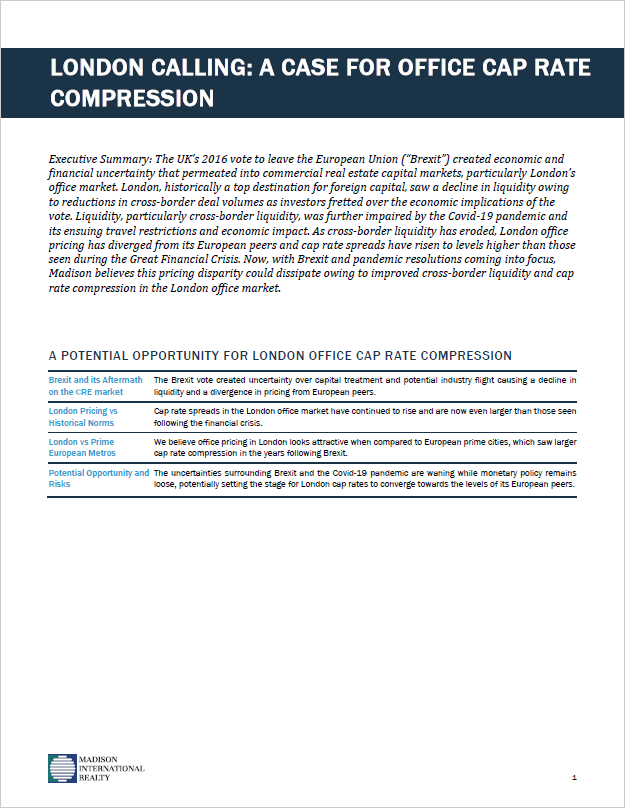Executive Summary: The UK’s 2016 vote to leave the European Union (“Brexit”) created economic and financial uncertainty that permeated into commercial real estate capital markets, particularly London’s office market. London, historically a top destination for foreign capital, saw a decline in liquidity owing to reductions in cross-border deal volumes as investors fretted over the economic implications of the vote. Liquidity, particularly cross-border liquidity, was further impaired by the Covid-19 pandemic and its ensuing travel restrictions and economic impact. As cross-border liquidity has eroded, London office pricing has diverged from its European peers and cap rate spreads have risen to levels higher than those seen during the Great Financial Crisis. Now, with Brexit and pandemic resolutions coming into focus, Madison believes this pricing disparity could dissipate owing to improved cross-border liquidity and cap rate compression in the London office market.
The 2016 vote for the UK to leave the EU (“Brexit”) resulted in heightened economic uncertainty as trade deals would need to be established and the future of the financial industry’s access to Europe was called into question. The heightened uncertainty had a profound effect on London commercial real estate capital markets as liquidity eroded rapidly, a situation only exacerbated by the Covid-19 pandemic and recession. Click here to read more.

